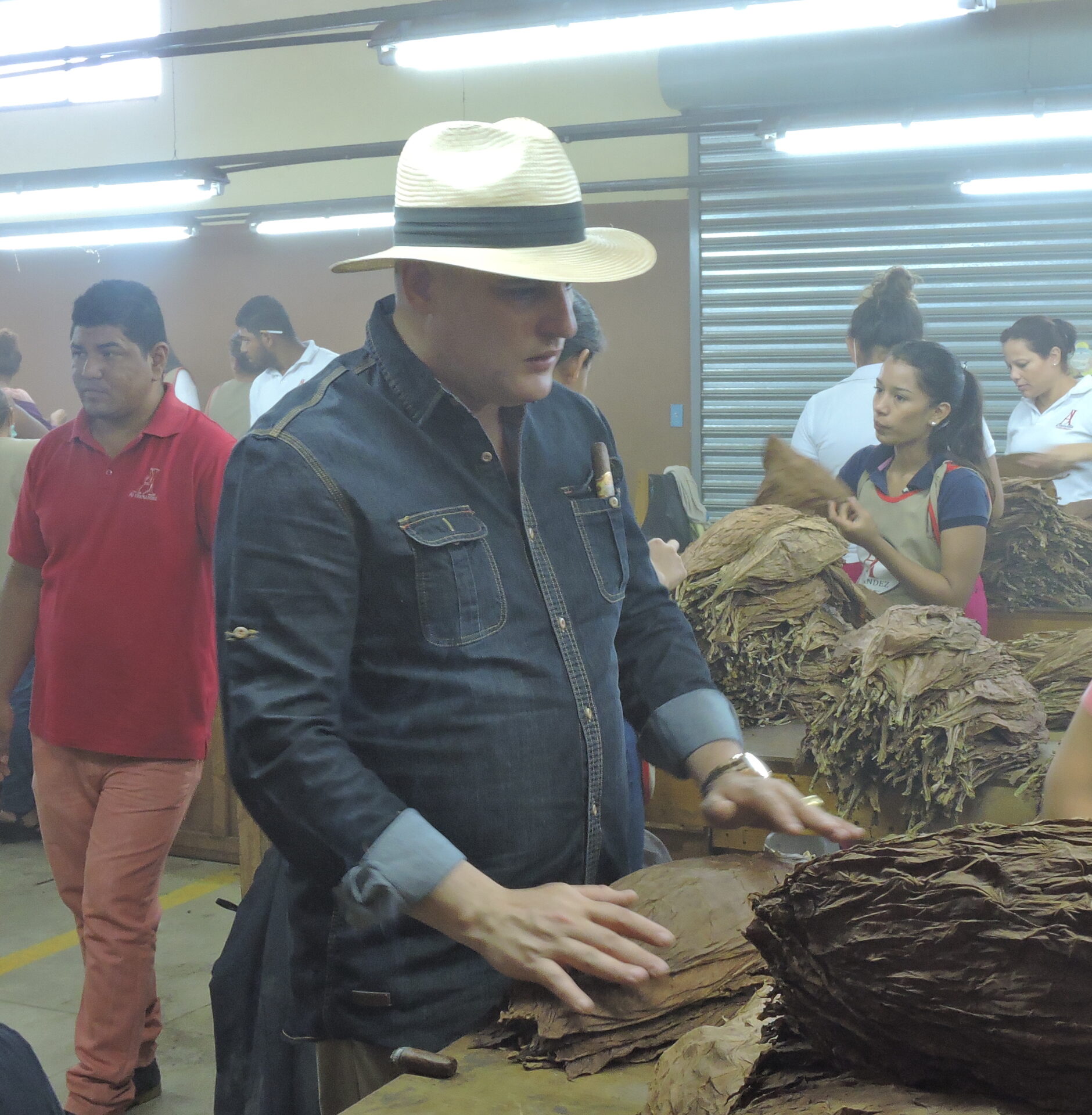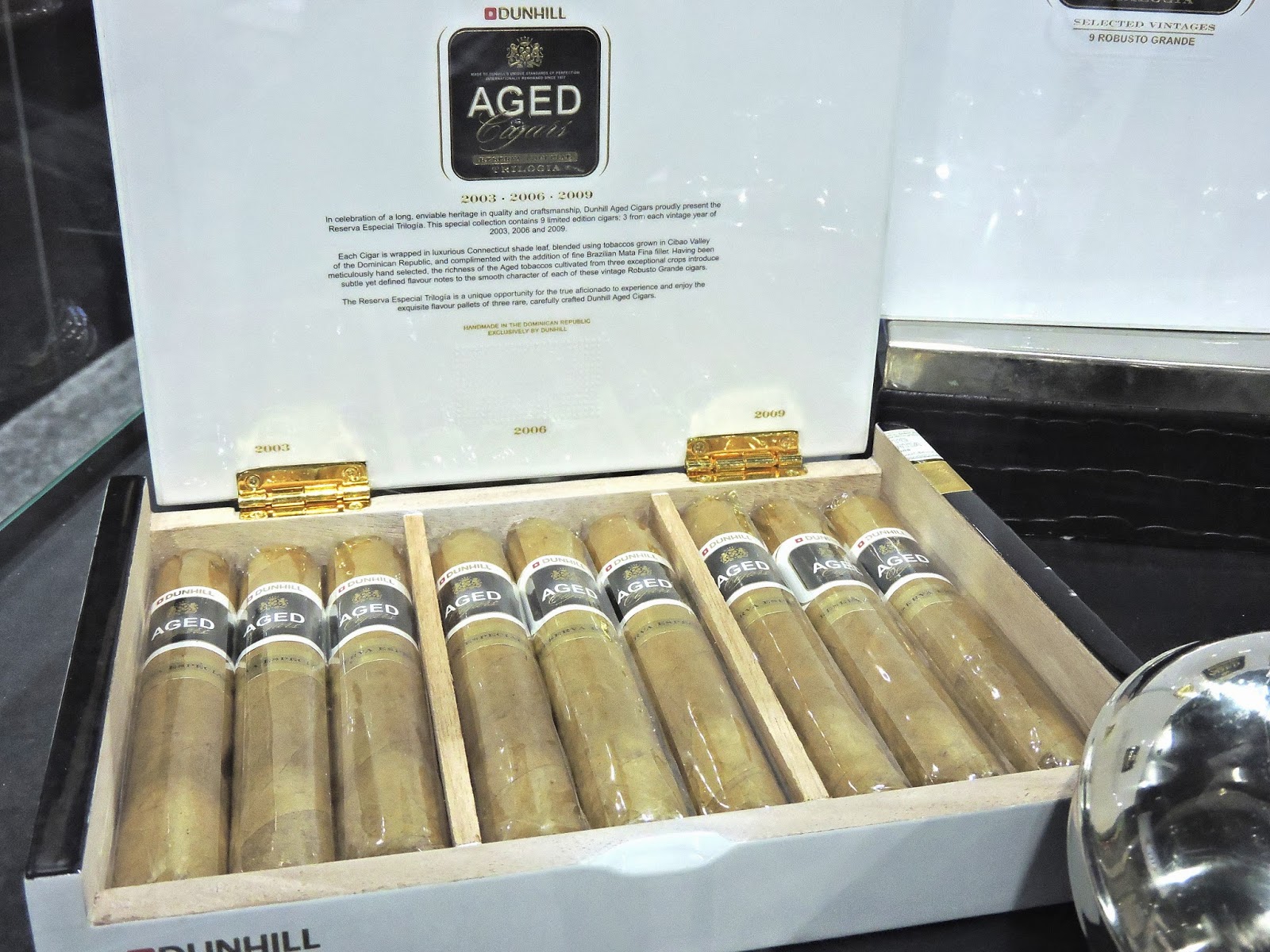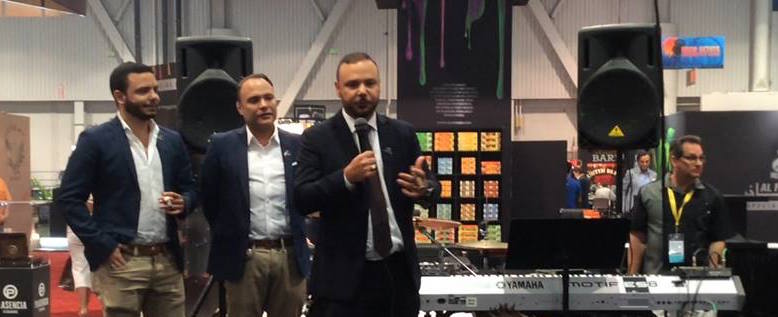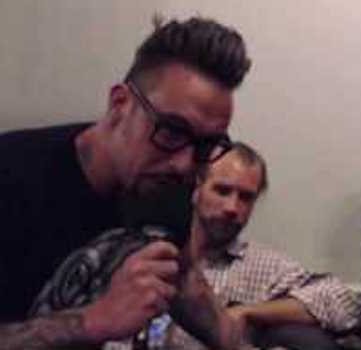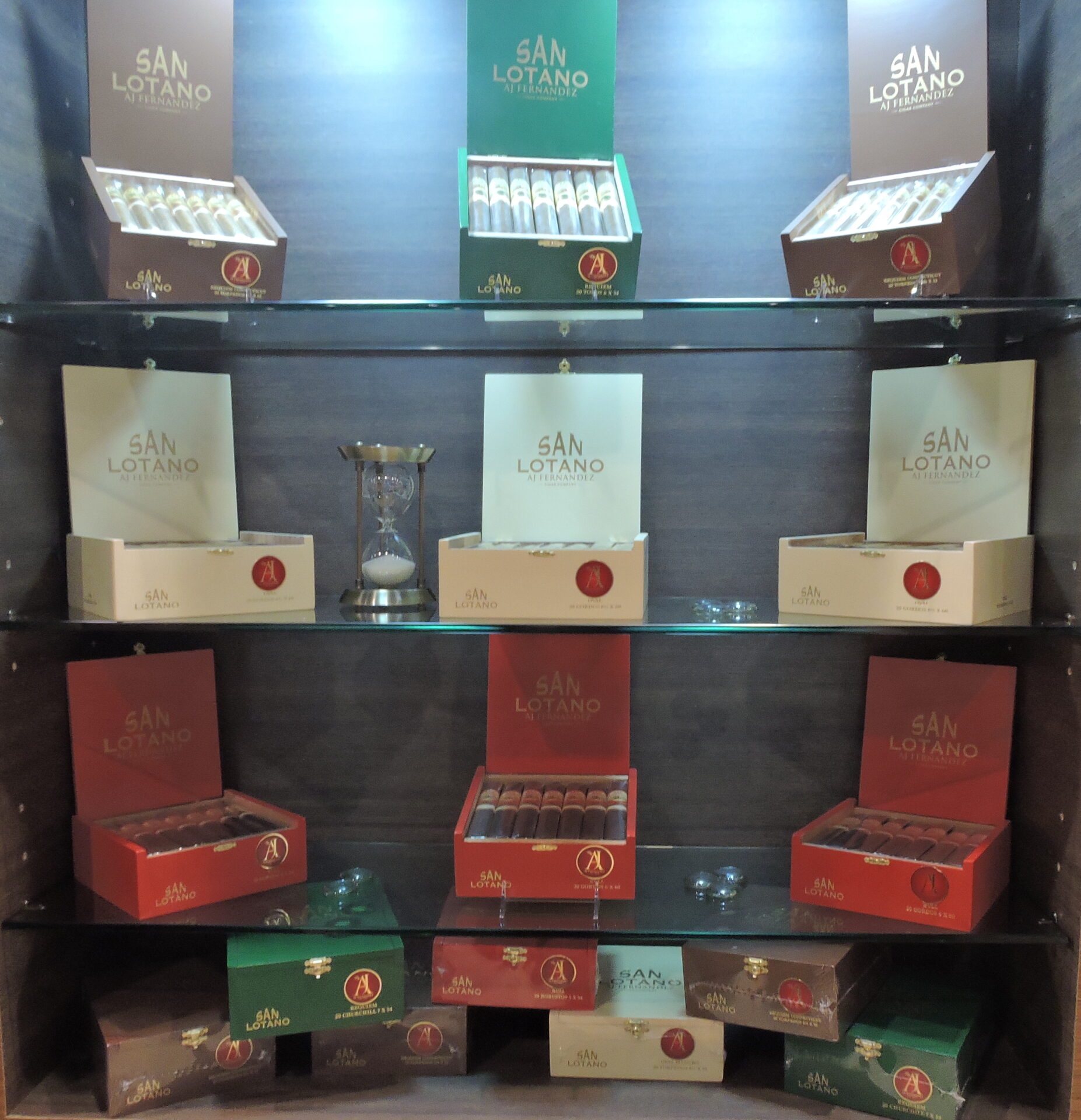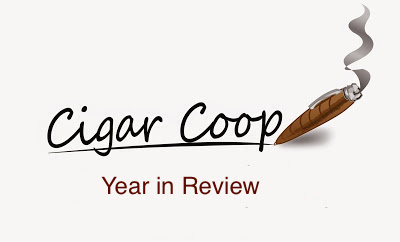 For the seventh consecutive year, we bring you our selections and analysis for the Top 12 cigar industry news stories and themes for the year. Unlike how we consider cigars for our Cigar of the Year Countdown, these news story selections are based on the actual calendar year for 2017.
For the seventh consecutive year, we bring you our selections and analysis for the Top 12 cigar industry news stories and themes for the year. Unlike how we consider cigars for our Cigar of the Year Countdown, these news story selections are based on the actual calendar year for 2017.
These stories are individual stories or ones that are multi-faceted. Some even overlap. Most importantly, they are the ones that had the greatest impact on the cigar industry as a whole.
This year we list the stories in alphabetical order.
AJ Fernandez Growth Continues
In 2014 and 2015, AJ Fernandez began to conquer the market with his New World and Enclave brands. In 2016, Fernandez began to become a focal point for producing blends and handling production for some of the biggest factories. One might think things would slow down for Fernandez in 2017 – that was far from the case.
The big story was Fernandez taking on the production of several of the cigar industry’s most iconic brands. Names such as Montecristo, Romeo y Julieta, H. Upmann, and Gispert (all from Tabacalera USA) would see releases that are cigars blended by Fernandez and produced at his factory. Another release for Hoyo de Monterrey for General Cigar would come from A.J. Fernandez. Toward the end of the year came the news that General Cigar was turning over production and distribution of its iconic Ramón Allones brand to AJ Fernandez himself – meaning Fernandez’s company will not only make the cigar, but sell it using its sales force.
These are huge iconic names now coming out of Fernandez’s factory in Nicaragua. At the same time, Fernandez continues to produce blends for Southern Draw Cigars, Foundation Cigar Company, Foundry Tobacco and Diesel (part of General), La Palina Cigars, and many, many others.
He also didn’t take his eye off his own company. 2017 saw the New World Puro Especial and Enclave Broadleaf hit the market. Plus an extensive repackaging of his San Lotano line.
[themify_box style=”light-green” ]
Editor’s Comments
The question isn’t what’s next. The question might be more like when do we see AJ Fernandez’s next move?
[/themify_box]
Altria Acquires Nat Sherman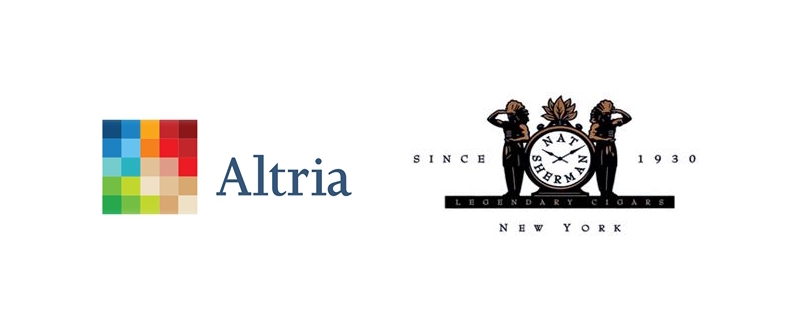
Back in January 2017, it was announced that tobacco giant Altria had acquired Sherman Group Holdings LLC, the company that distributes Nat Sherman Cigars. Nat Sherman is known to many cigar enthusiasts for its premium cigar offerings. Over the past 5 years, the brand had enjoyed a renaissance in the premium cigar segment thanks to the addition of Michael Herklots. On the other hand, Nat Sherman has a very large super-premium cigarette business – which was most likely the driving force of this acquisition. The move is important because this is the first time one of the big cigarette companies acquired a brand with a significant premium hand-rolled cigar component.
Sherman Group Holdings LLC was a family run business. Following the acquisition, Nat Sherman became a part of Altria’s smokeable products segment along with Philip Morris USA and John Middleton Co.
From the marketing end of premium cigars, to say it has been business as usual for Nat Sherman is simply incorrect. Altria’s marketing efforts are curtailed by the Tobacco Master Settlement Agreement (MSA). As a result, the major marketing push Nat Sherman had seen since Herklots’ arrival virtually has come to a standstill. The company has not released any new products. While the retail operation has remained open in New York, the online store was taken offline and has not come back.
What is perhaps more alarming is if we see more companies who are compliant with the terms of MSA acquire cigar companies. This could very much curtail many of the marketing efforts and interactions we have today.
This move came shortly after British American Tobacco completed its acquisition of Reynolds American.
[themify_box style=”light-green” ]
Editor’s Comments
It will be interesting to see where Nat Sherman 2018 goes – especially with the MSA in place. If other cigar companies are acquired by Big Tobacco such as Altria, will they have such restrictions imposed on them? Nat Sherman’s acquisition is in a way a reality check for what could we could see in the future as we enter the age of consolidation in the premium cigar industry.
[/themify_box]
Appropriations Bill Passes House of Representatives

The battle the cigar industry has had against the U.S. Food and Drug Administration (FDA) often seems like a pushing on a rope. However, September 14, 2017, might be a date the cigar industry remembers. It was on that date, the U.S. House of Representatives passed a twelve-bill spending package for the 2018 Fiscal year that included the Agriculture Appropriations Bill that was crafted by a House Subcommittee earlier this summer. This bill includes language that calls for a premium cigar exemption and predicate date change to August 8, 2016.
While not a “win”, it’s significant for the premium cigar industry. It’s the first time legislation had passed either chamber of Congress with language for the exemption or the predicate exemption.
The central point of interest for cigar enthusiasts is that the proposed bill has language in it that says federal funding cannot be used to finalize, implement, administer, or enforce FDA regulations on premium cigars. The proposed bill also includes language to define what a premium cigar is.
We broke down what it means and doesn’t mean here.
There still is a challenging road ahead. This language was not on the Senate Bill. This goes through what is known as a “conference committee” process where select members of Congress will agree to compromises and this will eventually lead to a common piece of legislation. There is a stronger anti-tobacco sentiment on the Senate side of Congress.
At press time (December 31st), the whole Appropriations Bill and Spending Process had still not been passed. Just before Christmas, lawmakers avoided a government shutdown by passing a short-term spending measure that will fund the government through January 19. At that point, the debate will be on what the spending deal will look like for the remainder of the Fiscal year 2018. This is expected to be the first big fight in Congress as it opens up the 2018 year.
[themify_box style=”light-green” ]
Editor’s Comments
Prediction: The cigar industry probably comes up short again as the complexities of the Spending Bill push the exemption and predicate date change to a lower priority. I don’t think the delays are helping, but one never knows.
[/themify_box]
Drew Estate Changes
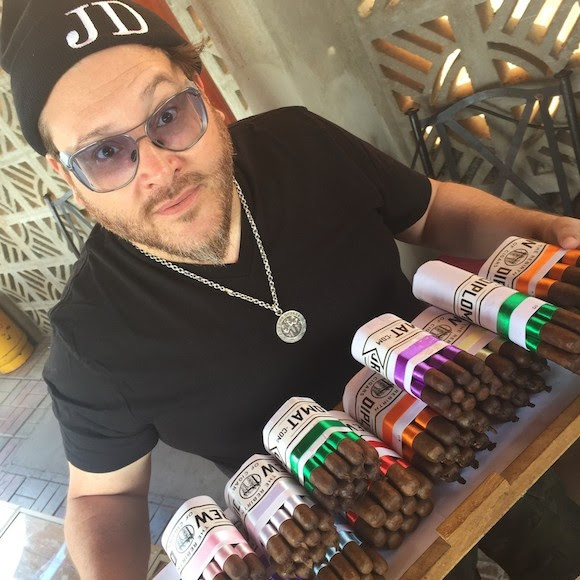
Back in October 2014, Swisher International acquired premium cigar giant Drew Estate tobacco. When acquisitions occur, it usually takes a while for the big changes to happen. 2017 saw a variety of changes at Drew Estate.
It was actually prior to the 2016 IPCPR Trade Show when Glenn Wolfson was named CEO of Drew Estate, but there were two significant changes that occurred in 2017.
- Jonathan Drew, the co-founder of Drew Estate, was named President of Drew Estate. Drew never had gone away, but had taken more of a background/ambassador role and spearheading his John Drew Brands beverage company since the acquisition.
- Peter Ghiloni, the CEO of Swisher International announced his retirement. John Miller, Swisher International’s Vice President of Marketing, was named his successor beginning in 2018.
It’s unknown how the Ghiloni retirement and the naming of a new successor will affect things. Anytime a new CEO comes, changes are bound to happen. Ghiloni was a big part of making the acquisition of Drew Estate happen. How Miller views Drew Estate is something to watch in 2018 – it’s basically an unknown.
At the Wolfson level, he had already begun to make his changes with bringing back Drew to become company President.
While I personally thought Drew Estate had done a very good job at maintaining its culture since 2014, one thing was clear – status quo was not satisfactory. According to Drew Estate, naming Drew as company President was meant to be a return to its roots with the objective to “unleash the entire team’s creative power under the leadership of JD”.
Meanwhile, other changes occurred. David Lazarus came in as Vice President of Sales. Subsequently, the Sales Department was reorganized. Concurrently, Selim Hanono, Vice President of Trade Show and events, departed. Stephan Qarimi was named International Market Manager.
Finally, Drew Estate and Royal Agio Cigars ended their distribution agreement on what on all accounts appears to be amicable terms. While Drew Estate is no longer distributing Royal Agio in the U.S., Royal Agio is handling distribution for Drew Estate in Europe. Meanwhile, Royal Agio has established its own U.S. Headquarters and it will be interesting to see what its next move is.
[themify_box style=”light-green” ]
Editor’s Comments
Bottom line, Drew Estate is a company that has always embraced change. They will be just fine and 2018 will probably be a year we see a lot of excitement from the company.
[/themify_box]
Dunhill Exits Premium Cigar Market
In January 2017, it was announced that tobacco giant British American Tobacco (BAT) was removing Dunhill Cigar and Pipe Tobacco from its overall portfolio. The move results in what appears to be the end of one of the oldest names in cigar and pipe tobacco.
British American Tobacco is focused on the cigarette business. While Dunhill cigar and pipe tobacco will be dropped, Dunhill cigarette products will continue to be solid.
The Dunhill brand can be traced back to Alfred Dunhill’s tobacco shop that opened in 1907 on Duke Street in London. The store had numerous marketing/distribution agreements with many Cuban cigar manufacturers. The store also served as a tobacconist for such famous people as Winston Churchill and King George VI. Dunhill’s relationship with the Cuban cigar market continued after the Cuban revolution. In 1982, Dunhill started working with Cubatabaco (Cuba’s nationalized tobacco company) to produce cigars. By 1984, the cigars started hitting the market and expanded into 30 countries. While the brand expanded, it soon started facing competition and by 1991, Cubatabaco and Dunhill went their separate ways. Dunhill did not find a new manufacturing source and eventually, the brand name was sold to British American Tobacco. In the United States, Dunhill was distributed by General Cigar Company – which also handled some premium cigar production for the brand.
Over the past few years, General Cigar had given the Dunhill brand a considerable push in the U.S. The brand has had new releases such as Dunhill Aged Maduro, Dunhill Heritage, 1907 by Dunhill, and Dunhill Signed Range Seleccion Suprema. In addition, the Dunhill Signed Range line was also revamped. Over the past few years, Dunhill had been a featured brand in the General portfolio at several IPCPR Trade Shows. This year, they were virtually absent from the General Cigar booth.
[themify_box style=”light-green” ]
Editor’s Comments
I’m perplexed on this one. I would have thought Dunhill would be an attractive portfolio for someone to acquire because it has predicate brands, a long history, and in recent years the brand had enjoyed a renaissance. Now I simply don’t know. The more time passes, the less likely I think we see a return of Dunhill to premium cigars and pipes.
[/themify_box]
The Gottlieb Doctrine

The nomination and confirmation of Dr. Scott Gottlieb as Commissioner of the U.S. Food and Drug Administration (FDA) was lauded by the premium cigar industry. Dr. Gottlieb was a physician and former Deputy Commissioner at the FDA before being tabbed by President Trump to head up the FDA. Because he had been on the record saying the FDA may be overreaching when it comes to regulation on tobacco, his selection was a good choice in the minds of the premium cigar industry. It took less than three months to see some results encouraging to the cigar industry in regards to its battle with the FDA over the Deeming Regulations affecting premium cigars.
On July 28, 2017, Gottlieb unveiled a tobacco program known as Protecting American Families: Comprehensive Approach to Nicotine and Tobacco. One component of this program was a plan to push the deadline for cigar and pipe tobacco companies to submit products for FDA approval out nearly three years to August 8, 2021. This was one component that was put into an initiative by the agency to reduce nicotine levels in cigarettes.
There are a couple of reasons for the change in the deadline for approval of cigar and pipe tobacco products. Part of the reason for the delay is that the agency recognized that what needed to be included in applications for approval for Substantial Equivalence (SE) wasn’t spelled out. Also, Gottlieb has said the agency is re-evaluating its approach for premium cigars. This media brand has dubbed this “The Gottlieb Doctrine”
We explored what Gottlieb’s Initiative meant:
Feature Story: Evaluating the Three-Year Delay Issued by the FDA
We devoted an Episode of Prime Time Special Edition to this topic as well:
While the Gottlieb Doctrine is good on the surface, we don’t know the specifics of what it means to re-evaluate the regulations. In addition, Dr. Tom Price, who was named Secretary of Health and Human Services by President Trump, resigned. Price was essentially Dr. Gottlieb’s boss. Now Alex Azar has been nominated to succeed Dr. Price. Azar has no track record in the premium cigar/tobacco space, so if approved, he will be a bit of an unknown.
[themify_box style=”light-green” ]
Editor’s Comments
My gut tells me Dr. Gottlieb isn’t going anywhere and Alex Azar’s appointment won’t impact this. The Trump agenda still focuses on reducing government regulations, so that is a good thing. My concern is I don’t think the regulations will drastically change. There could be some relief, but I also think it won’t be in 2018 where we see this happen.
[/themify_box]
Hurricane Irma
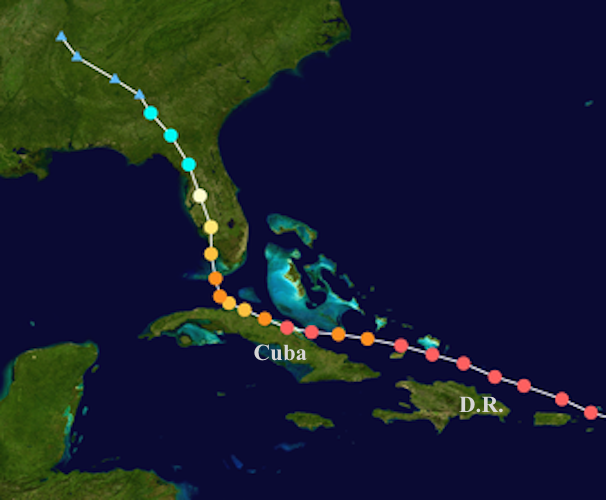
When it comes to the cigar industry, tobacco production in Central America and the Caribbean as well as the hub of the U.S. cigar business, South Florida, has a major impact. This September saw monster storm Hurricane Irma rip through the Caribbean and make its way to South Florida. While as a whole, it wasn’t catastrophic, the industry saw some effects.
These impacts were enough to slow down business during the month and cause disruption – particularly in the U.S. operations, but the industry seemed to bounce back quickly.
In the U.S., the State of Florida definitely took a hit. Florida started feeling the effects of Irma on Sunday, September 10th. United Parcel Service, the industry’s preferred U.S. shipping service, had suspended pickups and deliveries during this time. Many cigar companies have their U.S. distribution based in the Miami Metropolitan area. A good chunk of the region was under an evacuation order – resulting in many employees leaving town. The storm hit over the weekend, but many cigar companies closed prior to the weekend and remained closed following the storm.
Havana, Cuba took a big hit from the storm. There were reports of widespread flooding and storm surge. There are several factories located in the Havana area. While Habanos SA did not officially disclose the damage, we’ve been told there were some impacts. The growing region of Pinar del Rio was not impacted.
Rain and wind from Irma hit the north coast of the Dominican Republic on September 7th and caused some damage. The Santiago metropolitan area is located in the northern part of the country about 90 minutes from the northern coast. This is where many Dominican cigar factories have their base of operations. There are also several growing regions located in the northern part of the country. Prior to the storm hitting, President Danilo Medina ordered businesses closed, and this included cigar factories – so this slowed business. There were many reports of wind and rain to the northern part of the Dominican Republic, but there was no significant damage reported to facilities and tobacco. There were also power outages throughout the region.
[themify_box style=”light-green” ]
Editor’s Comments
It’s a cliché term, but the cigar industry dodged a bullet. At the same time, I’m sure the industry got a bit of a reality check on the impacts of a hurricane. Things will be just fine.
[/themify_box]
Launch of Plasencia Cigars
With nearly 153 years experience in the tobacco industry, the Plasencias are one of the iconic families in the industry’s history. Now, after many years being growers and producers in the cigar business, the Plasencias last year launched their own brand. It’s not just a brand with their name on it. To bring this product to market, the Plasencias now have their own U.S. distribution company, Plasencia 1865, LLC. While the company was launched late in 2016, it was at the 2017 IPCPR Trade Show where the official launch of the Plasencias as brand owners took place.
The launch at the 2017 IPCPR was simply a clinic on how to launch a brand. While many cigar companies don’t have the resources to put on such an event, there was a lot these companies can learn about launching a brand and/or product from this type of event.
Plasencia Cigars culminated the year with capturing the #9 rating on Cigar Aficionado’s Top 10 list – something the company is enormously proud of accomplishing during its first year in operation.
The Media Briefing at the 2017 IPCPR Trade Show
We were on hand for the media briefing that Plasencia Cigars had at the 2017 IPCPR Trade Show.
Interview Nestor Andrés Plasencia from the 2017 IPCPR Trade Show
We were able to get some one on one time with Plasencia Cigars CEO Nestor Andrés Plasencia at this year’s IPCPR Trade Show.
Nestor Andrés Plasencia Interview from IPCPR
Prime Time Special Edition: Special Guest, Nestor Andrés Plasencia
In December, Nestor Andrés graciously also give us a more in-depth segment on Prime Time Special Edition:
[themify_box style=”light-green” ]
Editor’s Comments
Year One for Plasencia Cigars can be considered a big success – and this is just the beginning. Year Two will be even bigger.
[/themify_box]
Matt Booth Splits from Davidoff and Teams up with Robert Caldwell
One of the first big stories this year was the announcement that the Matt Booth and Room 101 era at Davidoff was coming to an end.
While Booth is the owner of the Room 101 brand, he had partnered with Davidoff to handle production and distribution of his cigars. Booth had come from the jewelry business. In 2009, the brand was extended to include cigars. He started working with Camacho Cigars to handle the production and distribution. When Camacho was acquired by Davidoff, Booth moved over to Davidoff – but Room 101 still had a relationship with the Camacho brand under its “Board of the Bold”. Booth spent time as a brand ambassador for Room 101 – extensively traveling to support the brand.
Booth wrote a “Farewell Statement” to the cigar industry:
Cigar News: Matt Booth Issues Farewell Statement to the Cigar Industry
Or so we thought. We talked to Matt Booth on Prime Time back in May, and it was quite clear Booth was getting ready to relaunch. On the eve of IPCPR came the announcement that Booth would be teaming up with Robert Caldwell on two projects – and handling the distribution. The first collaboration was Hit & Run – a cigar being produced at the Tabacalera William Ventura. The second was a collaboration originally called The Truth – and then shortened to The T due to trademark issues. Booth and Caldwell are teaming up with AJ Fernandez to produce The T. The Caldwell collaborations are said to be limited in nature.
[themify_box style=”light-green” ]
Editor’s Comments
While we know Booth is back, there are two big questions: Will the collaborations with Caldwell continue? Perhaps more importantly, will the actual Room 101 cigar brands make a comeback in 2018? I don’t think Booth took a short hiatus just to do two limited collaborations. My gut tells me Matt Booth 2.0 in the cigar industry is just beginning.
[/themify_box]
Packaging Changes
Perhaps one story that is one of the most underrated ones of 2017 has been the introduction of new packaging to existing products. These include the introduction of new bands and boxes.
We reported the following from our 2017 IPCPR Post Game report. These packaging changes were not necessarily restricted to just the IPCPR:
There were two driving factors to this. The first dealt with warning label requirements that were due to the FDA on August 10th, 2017. In particular, box design changes were needed on many brands in order to comply with the regulation.
The second reason is a concern that packaging changes might need FDA approval in the future. When the Deeming Rules came out, it was assumed that no new packaging changes would be allowed. But about a year ago, a court ruled that labeling changes do not constitute a product change. However, some brand owners told me they are concerned that if this ends up back in court, the ruling could go against packaging changes being allowed. Therefore, there was a feeling that any planned packaging changes should be done sooner rather than later.
[themify_box style=”light-green” ]
Editor’s Comments
Unless something comes out of the court case the industry has filed against the FDA, we will see the implementation of warning labels in 2018 – and that’s going to have a big impact on how packaging looks in the cigar industry. I expect we’ll see some redesigns, but not nearly as many as we saw in 2017.
[/themify_box]
Personnel Changes
2017 was a year that saw a large number of personnel changes at many different levels in the cigar industry – more than most years past. The following are the significant confirmed moves that took place throughout 2017
- Adrian Acosta Genao: Known for his tenure at Nat Sherman’s Townhouse in New York, Acosta joined AJ Fernandez Cigars as its new National Sales Manager. He replaced Bernie Rodriguez.
- Matt Booth: Splits from Davidoff and teams up with Robert Caldwell (see above)
- Dan Carr: The man best known for his tenure as President of General Cigar joined ITG Brands last year as its President. Carr’s role has now expanded to include CEO duties for ITG. He is succeeding David Taylor who is retiring.
- Jose de Castro: Was named General Cigar Company’s new Vice President of Marketing.
- Jonathan Drew: Earlier this year, the co-founder of Drew Estate became the new President of Drew Estate.
- Manuel Garcia: The man best known for his tenure as Vice President at Habanos S.A., has joined Villiger Cigars.
- Michael Giannini: The longtime creative director from General Cigar ended a one-year hiatus from the cigar industry and is Ventura Cigar Company’s new creative director.
- Peter Ghiloni: Swisher International’s CEO is retiring. He will be replaced by John Miller.
- Selim Hanono: The man who served as Drew Estate’s Vice President of Trade Shows and Events has left the company. He joined AJ Fernandez Cigars as its new Chief Operating Officer.
- Hans-Kristian Hoejsgaard: The man who led Oettinger Davidoff AG for the past seven years has departed the company. He has been replaced by COO Beat Hauenstein. Concurrently, Chairman Andreas Schmid also departed Oettinger Davidoff AG and has been replaced by Domenico Scala.
- Alexandria Kling: The founder of Alux Cigar Brokerage became MLB Cigar Ventures new Vice President of Branding and Inside Sales.
- David Lazarus: Was named Senior Vice President of Sales at Drew Estate.
- Steve Lochan: Tabacalera USA named Lochan General Manager of Casa de Montecristo
- Rob Maneson: Tabacalera USA named Maneson CEO of JR Cigar.
- Rafael Nodal: As part of a strategic alliance Boutique Blends Cigars formed with Altadis U.S.A., Boutiques Blends Cigars founder Rafael Nodal also became part of Altadis U.S.A. His role is focused on product development, quality, and innovation. Later in the year, Nodal’s role expanded as well as he became head of product capability for Altadis U.S.A.’s parent company Tabacalera USA.
- Rob Norris: Tabacalera USA named Norris General Manager of Altadis U.S.A’s Premium Cigar Division
- Mark Pursell: After a little over three years as CEO for the International Premium Cigar and Pipe Retailers (IPCPR) Association, Mark Pursell has left the organization.
- Stephan Qarim: The man who served as International Sales and Marketing Manager has joined Drew Estate as its International Market Manager and Director of Travel Retail
- Terence Reilly: After departing Quesada Cigars, where he served as General Manager, Reilly joined Casa Fernandez as the company’s new Senior Vice President of Sales and Marketing.
- Janelle Rosenfeld: The woman who served for two decades as Altadis U.S.A.’s Vice President of Marketing has left the company.
- Mo Maali: The owner of Patina Cigars was named National Sales Manager at Mombacho Cigars.
- Bob Moreno: The longtime industry veteran from Xikar, E.P. Carrillo, La Palina, and Davidoff passed away.
- Miguel Schoedel: The industry veteran departed his job as National Sales Manager at Duran Cigars and joined Crowned Heads as its National Sales Manager.
- Kevin Schweitzer: The Wall Street Trader announced he acquired Vintage Rockafeller Cigar Group
- Maria Sierra: The acclaimed Cuban roller who worked at El Titan de Bronze and had primary responsibilities for rolling the La Palina Goldie has retired.
- Robbie Streitz: The veteran sales manager has departed PDR Cigars and returned to his radio roots as a co-host for the Smooth Draws Radio Show.
- Danny Vazquez: The founder of Barocoa Cigar Company shut his operation down and joined RoMa Craft Tobac as its new sales leader.
- Sean Williams: Departed the company he founded, Primer Mundo Cigars and became the new brand ambassador for General Cigars’ Cohiba brand.
- Fernando Zacarias: After departing Espinosa Cigars where he served as National Sales Manager, Zacarias joined E.P. Carrillo as the Florida Territory Manager.
[themify_box style=”light-green” ]
Editor’s Comments
This was a crazy year for people moving around. It’s not likely that 2018 will top this. Perhaps the bigger question I have is why doesn’t anyone actually get fired in the cigar industry?
[/themify_box]
Remembering the Titans: Uvezian, Padrón, and Oliva
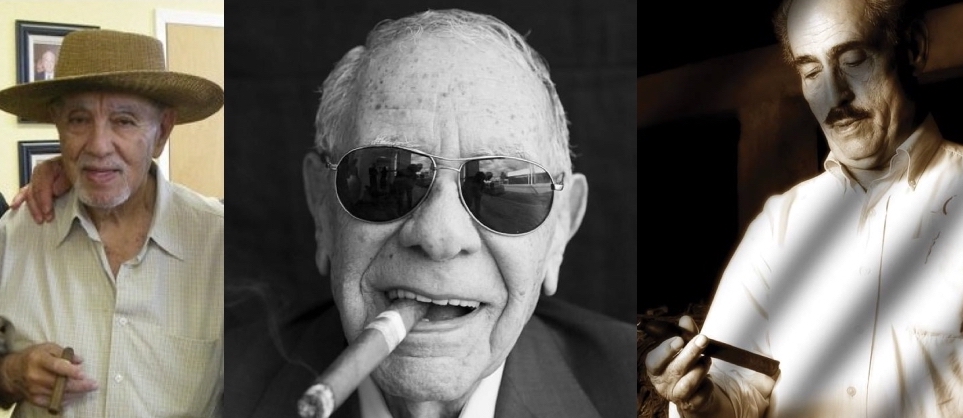
The cigar industry lost three of its titans this year: Avo Uvezian, José Padrón, and Gilberto Oliva Sr.
These three men were giants in the industry. While Padrón and Oliva Sr. came from tobacco families in Cuba, Avo Uvezian came from the outside by way of Beirut. Each made his own significant contribution to the cigar industry. One common thread is when each passed away this year, tributes poured in from cigar industry people and cigar enthusiasts around the world. Meanwhile, many continued to remember the late Carlos Fuente Sr, a titan in his own right who passed away in August, 2016.
Avo Uvezian
Avo Uvezian was a musician and recording artist by trade for many years. Playing as a pianist in Puerto Rico in the 1970s, he was introduced to cigars. Outraged by the price of Cuban cigars, he set out to create his own less expensive cigar. In 1982, he hooked up with Master Blender Henke Kelner in the Dominican Republic. By 1988 Uvezian launched his cigar brand. It was originally launched as Bolero Cigars, but the name was quickly changed to AVO Cigars. By 1995, Davidoff (for whom Kelner blended cigars) bought up the distribution of AVO Cigars and he has remained a brand ambassador ever since – and has become perhaps the most popular ambassador in the industry. Right up until the end, Uvezian would remain in that role.
- Avo Uvezian Passes Away at 91
- Reflections on Avo Uvezian
- Fred Rewey Remembers Avo Uvezian (Prime Time Episode 6)
- Jeff Borysiewicz Remembers Avo Uvezian (Prime Time Episode 29)
José Padrón
Like many cigar makers in Cuba, José Padrón would emigrate from Cuba to the United States following the nationalization of the cigar business as a result of the Cuban Revolution. In the U.S., a friend gifted Padrón with a small hammer which enabled him to get a carpentry job. From that job, he earned enough money to start his own cigar business in 1964. That hammer today is a symbol of the Padrón brand. Originally, Padrón rolled cigars in Miami. After a visit to Nicaragua, he started using that country’s tobacco in his cigars. Eventually, in order to meet demand, he would move his operation to Nicaragua and found Tabacos Cubanica. The factory burned down during the Nicaraguan Civil War in 1978. While it would eventually be rebuilt, Padrón would ultimately need to seek out a new factory across the border in Honduras. In 1985, when the Nicaraguan Embargo was enacted by President Reagan, he would move his Central American operation to Honduras. It would not be until 1990 when the Embargo was lifted that Tabacos Cubanica would re-open. The rest they say is history.
Gilberto Oliva
Like Padrón, Gilberto Oliva Sr. started his own career in the tobacco business in Cuba. He would flee Cuba as well, first going to Spain and then to Nicaragua.
Once in Nicaragua, Gilberto became one of the early pioneers in cultivating tobacco in Nicaragua. However the 1980s brought the Nicaraguan revolution, and like many Cuban ex-patriots who had settled there, Oliva Sr. was forced to leave again. He started establishing tobacco-growing operations in other countries, including Honduras, Mexico, Panama, and the Philippines. By 1995, Oliva Sr. returned to Nicaragua. Around this time, he turned his attention to cigar production. He and his son Gilberto Jr. teamed up with Nestor Plasencia’s Honduran operation to create the first cigar in the Oliva Cigar brand known as “Gilberto Oliva”. Eventually, Oliva Sr. would re-establish his tobacco operations in Nicaragua as well as open his own factory there. When it launched his brand, Oliva made the decision to leverage its own tobacco rather than relying on foreign tobacco. This allowed the Oliva Company’s growth.
[themify_box style=”light-green” ]
Editor’s Comments
R.I.P. Avo, Mr. Padrón, and Mr. Oliva. This follows the 2016 loss of another titan, – Carlos Fuente Sr. (R.I.P. Don Carlos)
Avo’s loss might be felt harder in 2018, as the brand will have its first full year without him as a part of the brand. Arturo Fuente, Padrón, and Oliva landed the top three cigars in Cigar Aficionado for 2017. This means these families will in attendance at Cigar Aficionado’s Big Smoke in November 2018 as featured guests. This could be the industry’s most emotional event of the year.
[/themify_box]
Photo Credits: Cigar Coop, except where noted.


